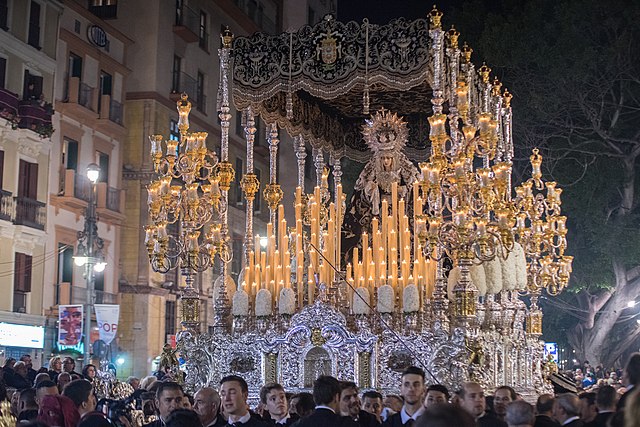The Andalusians are the people of Andalusia, an autonomous community in southern Spain. Andalusia's statute of autonomy defines Andalusians as the Spanish citizens who reside in any of the municipalities of Andalusia, as well as those Spaniards who reside abroad and had their last Spanish residence in Andalusia, and their descendants. Since reform in 2007, the Andalusian statute of autonomy identifies the territory as a historic nationality in the preamble.
The Spanish Language Academy recognizes Andalusian Spanish as a set of diverse dialects. Andalusian nationalism is the belief that Andalusians are a nation separate from other ethnicities within Spain.
Arabic influence in Andalucia.
Holy Week procession in Córdoba.
Holy Week procession in Malaga.
Andalusian child and woman, c. 1868.
Andalusian nationalism is the nationalism that asserts that Andalusians are a nation and promotes the cultural unity of Andalusians. In the past it was considered to be represented primarily by the Andalusian Party. However, the party disbanded in 2015; there are also lesser political organisations that identify with Andalusian nationalism. Some political forces without parliamentary presence like Nación Andaluza and Asamblea Nacional de Andalucía may be found advocating independence. There is also a movement defending the idea that Andalusian is not a dialect of Spanish, but a language of its own.
Monument to Blas Infante, Father of Andalusia, erected in the same place where he was executed without trial by Francoist insurgents in 1936.





